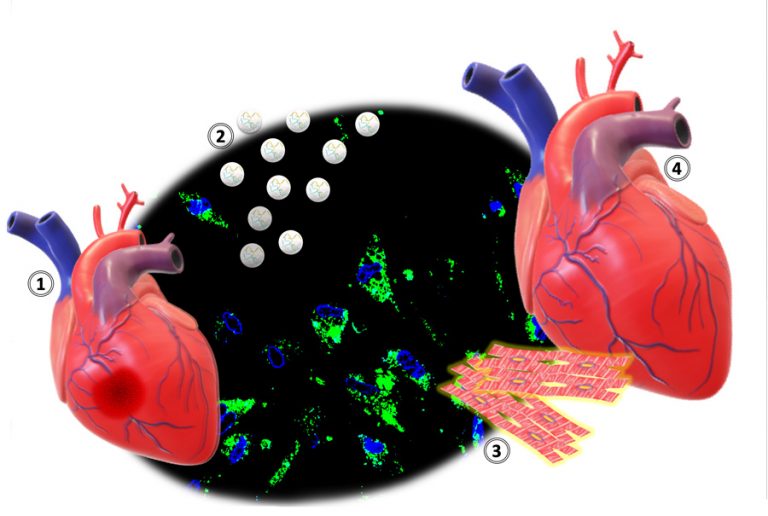Can Your Heart Heal Itself? 2024 Study Uncovers Remarkable Potential
Share IT

Launch Your Dream Website with Us!
Click Here to Get in touch with Us.
Categories
Heart regeneration 2024 study
Can the Heart Repair Itself? Novel Research Gives Hope for Regeneration
Millions of people worldwide are affected by heart disease every year, making it the leading cause of death. Present therapies have not been able to fully offer the possibility for the heart to mend itself, even though they can control symptoms and enhance functionality. However, there is hope thanks to a recent ground-breaking study that was published in Nature Cardiovascular Research and suggests that the human heart may naturally be capable of self-renewal and regeneration.
Table of Contents

The Fascinating Results: A Change in Theory
Heart regeneration 2024 study
The goal of the research, which was carried out by a group at Baylor College of Medicine, was to comprehend the adult heart’s post-injury microenvironment. According to conventional wisdom, regeneration cannot take place unless certain cell types, such as cardiomyocytes (heart muscle cells), are directly replaced. But the results of this investigation told a different tale.
The microenvironment of the heart’s heart revealed a complicated interplay between different cell types. Cardiomyocytes, local immune cells, and cardiac fibroblasts collaborate to form this “pro-renewal niche”. These cells support and communicate with one another through complex signalling systems, which stimulate the growth of cardiomyocytes and aid in tissue repair.
This discovery contradicts the earlier theory that regeneration depends only on the replacement of missing cells. Rather, it highlights how crucial it is to create a heart-centered, nurturing environment in order for healing to happen naturally.
The Important Role: YAP and Its Impact
Heart regeneration 2024 study
A particular protein known as YAP (Yes-associated protein) was identified in the study as being crucial to the regulation of this milieu. As a master switch, YAP activates genes necessary for cardiomyocyte cell development, proliferation, and survival.
Through YAP level manipulation in adult hearts, the researchers saw amazing outcomes. Following an injury, increased YAP activity led to the creation of the pro-renewal niche, which significantly increased cardiomyocyte proliferation and enhanced heart function. This intriguing finding points to a possible therapeutic target for promoting the heart’s natural capacity for regeneration.
Consequences and Prospective Courses
Heart regeneration 2024 study
Although the study opens the door to possible treatments, it’s crucial to keep in mind that it’s yet preliminary. To comprehend the intricate processes at play and turn these discoveries into human treatments that are secure and efficient, more investigation is required.
But the ramifications are wide-ranging. Discovering how to use the pro-renewal niche and YAP could result in ground-breaking new treatments for heart disease. Imagine a time in the future when people’s injured hearts are able to heal themselves, sparing the need for heart transplants and giving millions of people a fresh start.
This work promotes a paradigm change in our understanding of heart disease, in addition to possible remedies. Rather than concentrating only on repairing damaged tissue, scientists can now investigate methods to enhance the heart’s natural capacity for regeneration. This creates a completely new field for study and research, opening the door for future creative and individualised treatment methods.
Important lessons learned
Heart regeneration 2024 study
The ability of the heart to heal itself through intricate interactions with its surroundings was recently demonstrated by research.
In order to stimulate the pro-renewal niche and encourage cardiomyocyte proliferation, YAP protein is essential.
Although more investigation is required, this work offers promising avenues for treating cardiac disease in the future.
Heart regeneration 2024 study: The emphasis switches from repairing injured tissue to enhancing the heart’s natural capacity for regeneration.
There is hope for the future of heart health because to this ground-breaking research. Even while there’s still a long way to go, hearts’ ability to mend themselves is becoming a real prospect that just needs to be explored.

Launch Your Dream Website with Us!
Click Here to Get in touch with Us.





























































Recent Comments